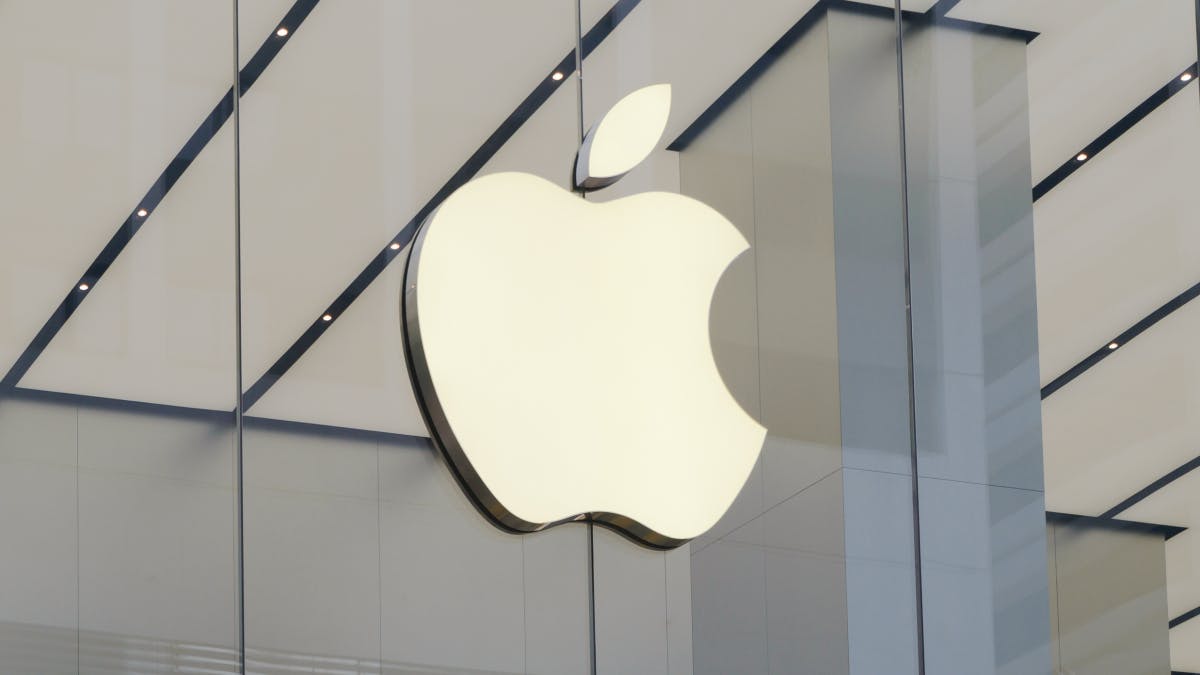World
Corona is not defeated yet: the closure is back in these countries

Friday, October 22, 2021
Corona is not defeated yet
In these countries, the lockdown is back
The world is entering the second fall and winter season for the epidemic. In many countries, the number of infections has increased rapidly in recent times. So some governments are resorting to a tried and tested method: lockdown. The measure will also be reactivated in the first EU country.
In light of the renewed increase in the number of infections, concerns are emerging about the further development of the epidemic in Germany. Time and time again, politicians from various camps stress that it is a mantra that a new shutdown must be avoided at all costs. Schools and day care centers should remain open, too. Whether this can last or for how long is currently open. In other countries, blockades have been relaunched in the fight against rising numbers of infections as a tried and tested method of containing the coronavirus.
Latvia
In light of the sharp rise in the number of infections, the government in Riga pulled the emergency brakes on Thursday and flooded the country until November 15 – with sweeping restrictions and a night-time curfew. „We are all on a stricter four-week regime,” Prime Minister Krisjanis Karenz said. In Latvia, the number of new infections has recently risen to a new level. The 14-day infection rate is about 1,463 new infections per 100,000 population – the maximum value being the start of the epidemic. The European Union’s ECDC currently has the highest infection rate in Europe for Latvia.
In the European Union country bordering the Baltic Sea, only shops intended for daily necessities are allowed to remain open. Recreational, cultural, recreational and sports facilities will also remain closed, and catering establishments are only allowed to sell outside the home. Events and meetings are prohibited. Additionally, citizens are only allowed to leave their homes between 8pm and 5am for good reason. In Latvia, just over half of the population of 1.9 million has been vaccinated against coronavirus. The government has been trying for months, with only modest success, to increase the population’s low desire for vaccination.
Russia
In Russia, the lockdown will be applied again in the capital, Moscow, from October 28. Mayor Sergei Sobyanin announced that in the fight against the growing number of Covid-19 cases, all shops, bars and restaurants will have to close again. Stores dedicated to daily necessities such as supermarkets and pharmacies will likely continue to open. The number of new infections and the number of deaths reported daily in Russia have risen to new highs again and again in the past few days. The government blames a lack of vaccination preparedness for this.
Russia’s Baltic city of Saint Petersburg has not imposed a lockdown, but it will introduce several new restrictions into public life from November 1. From then on and in the following weeks, vaccination or recovery certificates will gradually be required for more types of events or locations that are publicly available. The Kremlin recently stressed several times that no nationwide lockdown was planned. The decision on stricter corona rules rests with each region.
Ukraine
In Ukraine, too, the number of coronavirus cases has increased sharply recently. On Monday, new restrictions came into effect in some areas in the east and south of the country, which are currently particularly hard hit. The authorities are currently reporting new highs for the second day in a row with 23,785 new infections within 24 hours and another 614 deaths linked to the virus. In total, Ukraine has about 2.72 million infections and more than 63,000 deaths.
The new restrictions seem to have a positive effect: the demand for corona vaccines in Ukraine has increased significantly recently. As authorities announced on Wednesday, 226,587 people were vaccinated against the virus within 24 hours – more than at any time since the vaccination campaign began in Ukraine in February. Pictures circulated on the Internet showed long queues in front of vaccination centers in the country.
China
Residents of a quarantined residential area in Yinchuan City, northwest China, are getting necessities.
(Photo: Imago / Xinhua Pictures)
With a policy of not spreading the virus, China repeatedly resorts to strict lockdowns, even with a small number of infections, in order to prevent the spread of the Corona virus. Restrictions on people are currently being tightened in some parts of the country – the capital, Beijing, and some areas in the northwest have also been affected. Citizens are sometimes prohibited from leaving their apartment complexes, face-to-face teaching in schools is suspended and businesses have to close. With 28 locally transmitted infections detected, China recently reported double the number of cases the day before.
New Zealand
In New Zealand, the lockdown is no longer in place, but it is still in place. Strict measures are still in place in Auckland, the country’s largest city. And that’s since August, when the delta variant gained a foothold in New Zealand. Prime Minister Jacinda Ardern does not want to end the strict lockdown until the country reaches its 90 per cent vaccination target. Only then will fully vaccinated people „be able to meet family and friends again, go to bars and restaurants and do the things they love with greater safety and confidence,” Ardern said Wednesday. To date, about 68 percent of people have been fully vaccinated, and 86 percent have received at least one dose.
New Zealand has been largely isolated from the rest of the world since the start of the pandemic. Until the advent of the delta variant, life for New Zealanders remained almost normal for several months. Therefore, the island nation was seen around the world as a role model in the fight against Corona.
Great Britain
Great Britain is currently facing a massive increase in the number of infections. About 52,000 new infections were reported on Thursday. The number of daily hospital admissions is nearly 1,000. The death rate was seen on Tuesday, with 223 cases reported, for the last time in March.
British Health Secretary Sajid Javid warned on Wednesday that the number of new infections each day could rise to 100,000. However, the minister said it was „at this point in time” it was still too early to justify a return to the Corona rules that were scrapped in July in much of England. On July 19, the so-called „Freedom Day,” nearly all regulations to contain the virus expired.
In the meantime, however, the call for new coronavirus measures in the island nation is getting louder. Matthew Taylor, chief executive of the NHS, told The Guardian: „We’ve hit the limit and it’s mid-October. It would take a lot of luck not to find ourselves in a major crisis in three months.” The British Medical Association accused the government of acting with „willful negligence”.
Like many others, Taylor is calling for the government to implement Plan B, which was announced a few weeks ago, and would mean, for example, reintroducing mask requirements in crowded rooms and the requirement to show specialty vaccination certificates. events. BMA President Chaand Nagpaul also called for the immediate reintroduction of the Corona measures. The government has promised to take Plan B if the NHS is in danger of being sucked into it. „As first-line physicians, we can categorically say that this point has now been reached,” Nagpol said, according to a statement.

„Praktyk żywieniowy. Guru bekonu. Irytująco pokorny entuzjasta zombie. Uczeń totalny”.
World
Putin’s fifth inauguration leads to a split in the European Union

To share or not? A poisoned invitation: Putin’s fifth inauguration leads to a split in the European Union
Putin in a festive mood: Kremlin head in March 2021 at a concert marking the 7th anniversary of the „reunification” of Crimea and the city of Sevastopol with Russia at Luzhniki Stadium
© Alexey Druzhinin / Russian Presidential Press and Information Office / TASS / ImageImago
Should I accept Putin’s invitation to start his new term or not? A diplomatic topic for discussion in the European Union. According to diplomats, Germany and France do not agree either.
There are major disagreements within the European Union about how to properly deal with invitations to attend the celebration marking the beginning of Russian President Vladimir Putin’s fifth term in office. As several EU diplomats told the German news agency in Brussels on Monday, countries such as France, Hungary and Slovakia would like to send representatives to attend Putin’s swearing-in in order to keep communication channels open. However, Germany and many other EU countries consider participation inappropriate, especially in light of Russia’s aggressive war against Ukraine. “Germany will not participate in this event,” a Foreign Ministry spokeswoman in Berlin said on Monday.
In the case of the Federal Republic, the government summoned the German ambassador in Moscow, Alexander Graf Lambsdorff, to Berlin for a week-long consultations in the wake of cyberattacks on the Social Democratic Party and German companies. The federal government blames a Russian military intelligence unit for the attacks.
To share or not? This is the question in the European Union
The official representative of the European Union in Moscow, like most ambassadors of EU member states, will not attend the ceremony on Tuesday, a spokesman for the European External Action Service said late in the evening in Brussels. Foreign Affairs Representative Josep Borrell had previously spoken against the EU’s participation in the event. But according to diplomats, there were also dissenting voices. Among other things, they are said to have warned that staying away from the ceremony could give Russia an excuse to ignore more diplomatic rules and norms in the future.
Profession of dictator
From Moth to Putin, Eternal – the bloody path of the Kremlin master in pictures
Putin – and who else?
Putin wants to be sworn in for another term as Russian president on Tuesday morning. This marks the beginning of another six years as head of state. The ceremony will be held in the Moscow Kremlin in front of representatives of the government, both houses of the Russian Parliament and other high-level guests. 71-year-old Putin, who has dominated politics in the country for 24 years, achieved a record result of more than 87 percent of the votes in the presidential elections that took place last March.
The European Union strongly criticized the conduct of the elections. Russian voters have very limited access to factual information and “have no real choice,” a statement said. The reason for this was, among other things, the exclusion of many candidates – including all those who spoke out against Russia’s aggressive war on Ukraine.

„Praktyk żywieniowy. Guru bekonu. Irytująco pokorny entuzjasta zombie. Uczeń totalny”.
World
War in Ukraine: Olaf Scholz urgently warns against Russia’s use of nuclear weapons

Advisor Olaf Schulz The Social Democratic Party (SPD) says it wants to further strengthen international unity against Russia’s use of nuclear weapons in the Ukraine war. “It is always important to say loudly that nuclear weapons must not be used in this war,” Schulz said during a visit to Latvia. He added that this should be one of the clear messages in the peace conference scheduled to be held in Switzerland in mid-June.
Russian President Vladimir Putin had previously ordered his army to train on the use of tactical nuclear weapons. Forces near the border must also participate Ukraine To share. The Russian military leadership’s announcement did not mention exactly where and when the first military maneuver of this kind would be held since the collapse of the Soviet Union.
The United States criticized the announced Russian nuclear maneuvers
The United States has Russia He was accused of „irresponsible speech” regarding the announced maneuver. Pat Ryder, a spokesman for the US Department of Defense, said that given the current security situation, such announcements were “completely inappropriate.” Meanwhile, there are currently no signs of changes “in Russian strategic strike force formations” and the United States continues to monitor the situation. John Kirby, spokesman for the US National Security Council, made a similar statement: “It is simply reckless and irresponsible for the leader of a major nuclear power to wave his sword the way he does regarding the potential use of nuclear weapons.” He looks at Putin.
In Riga, Schulz noted that China had also warned Russia against doing so in the past nuclear weapons For use in the war against Ukraine. Russia’s dependence on China has increased sharply in recent years as a result of Western sanctions, and two-way trade has expanded significantly since the beginning of the war.
Therefore, Chinese President Xi Jinping, who is currently on a state visit to Europe, is considered one of the few heads of state who can exert influence on Putin. French President Emmanuel Macron and European Commission President Ursula von der Leyen also recently called on Xi to use this leverage. Put it in To convince them to end the war.
Estonian Prime Minister Kaja Kallas also said that she should not be swayed by Russian nuclear threats. The aim of advertising is to spread fear. “That is why we should not give in to him,” Kalas said after the meeting with Schulz. Meanwhile, Callas stated that he could not completely rule out the possibility of Russia using nuclear weapons. She said Russia had „done all kinds of crazy things” in the past.
Schulz met with the heads of government of the three Baltic countries in Riga, Latvia. There he stressed the unity within NATO that Putin had sparked with his attack on Ukraine. During the visit, Schulz also backed EU plans to use revenues from frozen Russian state assets to finance arms purchases for Ukraine.
Schultz wants to buy global weapons for quick delivery
The European Union Commission had already announced similar plans months ago. There are legal reservations regarding demands to completely confiscate about 200 billion euros of Russian state funds frozen in the European Union and hand them over to Ukraine. The Authority believes that the resulting interest income can be used without any legal problems. This is likely a low single digit billions per year.
Schulz demanded in Riga that 90% of this amount should be used to finance arms shipments to Ukraine. He also called for this money not to be used to purchase weapons only within the European Union, but rather in the entire global market. The Chancellor said: “What is actually important now is that weapons can be delivered quickly, and not for this to happen simply by building a new factory.”
At the same time, Schulz, together with the heads of government of Lithuania, Latvia and Estonia, called for expanding European arms production. He added that the matter has already begun in the field of ammunition and anti-aircraft systems.
The Czech Republic also buys ammunition for Ukraine
The European Union announced at the end of last year that it wanted to deliver one million artillery shells to Ukraine by spring. However, this goal was far from being achieved, which, in addition to the temporary interruption of arms shipments from the USA, led to a shortage of ammunition in the Ukrainian army and loss of territory.
Alternatively, the Czech Republic has been working for months to purchase up to 1.5 million doses from the global market for delivery to Ukraine. About 20 countries are helping to finance this initiative, including Germany with about 600 million euros. Deliveries should start in the summer at the latest.
Follow all the current developments in Russia’s war against Ukraine on our live blog.
Advisor Olaf Schulz The Social Democratic Party (SPD) says it wants to further strengthen international unity against Russia’s use of nuclear weapons in the Ukraine war. “It is always important to say loudly that nuclear weapons must not be used in this war,” Schulz said during a visit to Latvia. He added that this should be one of the clear messages in the peace conference scheduled to be held in Switzerland in mid-June.
Russian President Vladimir Putin had previously ordered his army to train on the use of tactical nuclear weapons. Forces near the border must also participate Ukraine To share. The Russian military leadership’s announcement did not mention exactly where and when the first military maneuver of this kind would be held since the collapse of the Soviet Union.

„Praktyk żywieniowy. Guru bekonu. Irytująco pokorny entuzjasta zombie. Uczeń totalny”.
World
What tourist behavior bothers Italians the most?

He presses
Many German vacationers will return to Bella Italia in 2024. In order not to attract negative attention from local residents, they should refrain from certain behaviors.
Unfortunately, it is not uncommon for tourists to display bad manners while on vacation. Sometimes it gets to the point that the local government feels forced to take action against them: an example of this is banning entry to geisha areas in the Japanese city of Kyoto after tourists behaved disrespectfully towards the artists. In a small Japanese town near Mount Fuji, a popular photo of vacationers is obscured with privacy gauze because they leave a lot of trash behind and block paths. In Venice, fines are imposed for not wearing a shirt and swimming in the canals because many holidaymakers do not follow the rules.
Nine behaviors that make tourists instantly unpopular in Italy
But sometimes, it doesn’t have to be a huge mistake to attract negative attention from locals while on vacation. Learning platform Prebly He conducted a representative survey of Italians living in Italy to find out which behavior of foreign guests bothers them most. 18% of locals get upset when guests don’t order traditional Italian dishes while on vacation. For 12%, ordering a cappuccino after 12 noon is a no-no. Many also find it impossible when speaking to them in a foreign language.
However, leaders of rude tourist behavior no longer fall into the category of false mistakes. Most locals, 69%, are upset when holidaymakers behave disrespectfully at memorial sites. Noise and leaving garbage behind are also a major source of inconvenience to residents (24 percent).
You don’t want to miss any news and tips about vacation and travel?
Then sign up for the travel newsletter from our partner Merkur.de.
In the overview you will find the nine worst behaviors of tourists to Italy from the point of view of local residents:
- Lack of respect for memorials (69%)
- Noise and littering (24 percent)
- Ordering foreign dishes (18%)
- Order cappuccino after 12 noon (12 percent)
- Addressing local residents in a foreign language (12 percent)
- Ongoing small talk (10 percent)
- Don’t wait to be hired (7 percent)
- Not being able to even say hello or thank you in Italian (5 percent)
Five tips to behave like an ideal tourist in Italy
In Italy, people are accustomed to tourists, but this does not mean that vacationers can afford anything. If you want to show your appreciation or simply want to avoid some mistakes, you can follow the etiquette below Prebly Catch:
- Don’t take holiday selfies in inappropriate places: Monuments and memorials are some of the most visited tourist attractions – but it’s not always appropriate to stand in front of them for a holiday photo. Pay attention to information panels explaining the context of the memorial to determine appropriate behavior.
- No cappuccino in the afternoon: In Italy, after midday is common coffee – Any espresso – I drank. If you order a cappuccino, you are fooling yourself and revealing yourself as a tourist – and someone who has not studied Italian coffee culture.
- Learn basic vocabulary: Locals enjoy when tourists know at least the most important terms in their language. For example Ciao As a greeting or farewell beauty To express gratitude.
- Appreciation of food culture: For many Italians, it is terrifying to see vacationers cutting spaghetti or cutting pizza into small pieces with a knife and fork. Spaghetti is rolled around the edge of the plate using a fork – no spoon – and pizza is traditionally eaten by hand.
- Avoid noise: In Italy there is usually a quiet period between 1pm and 3pm. She calls herself Reposo. During this period, tourists should avoid loud disturbances and act considerately.

„Praktyk żywieniowy. Guru bekonu. Irytująco pokorny entuzjasta zombie. Uczeń totalny”.
-
Tech3 lata ago
Te oferty Apple nadal istnieją
-
Top News2 lata ago
Najlepsze strategie i wskazówki dotyczące zakładów na NBA
-
Tech3 lata ago
Kup PS5: Expert bez nowych konsol – kiedy nadejdą dostawy?
-
Tech3 lata ago
Windows 11 dla programistów: aplikacje na Androida, zestaw gier i pakiet Windows SDK
-
Economy3 lata ago
Huobi Global rozpoczął kampanię zerowej opłaty dla użytkowników kart bankowych w Europejskim Obszarze Gospodarczym i Wielkiej Brytanii
-
entertainment3 lata ago
Dieter Bohlen ogłosił nową pracę w telewizji – to zaskakujące
-
entertainment3 lata ago
„Helene Fischer Show”: Nagłe zakończenie bożonarodzeniowego show – ostre słowa ZDF
-
Tech4 miesiące ago
Ubóstwo CO2 może ujawnić łatwość życia – Wissenschaft.de






